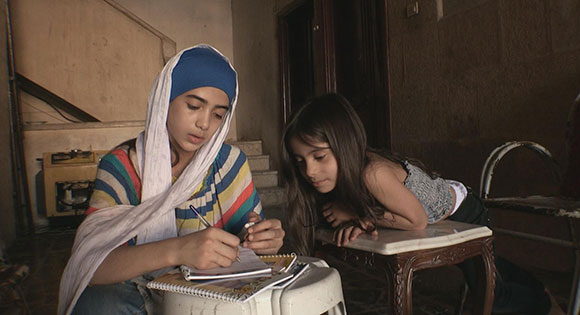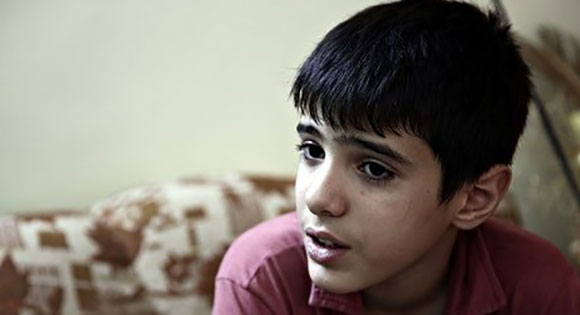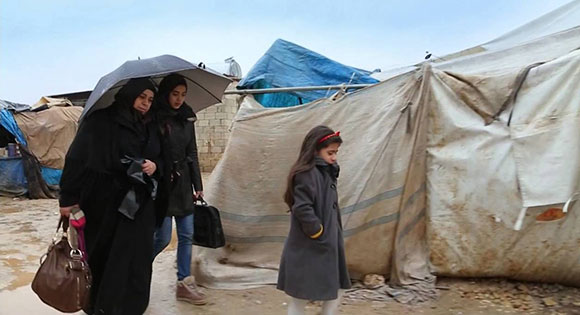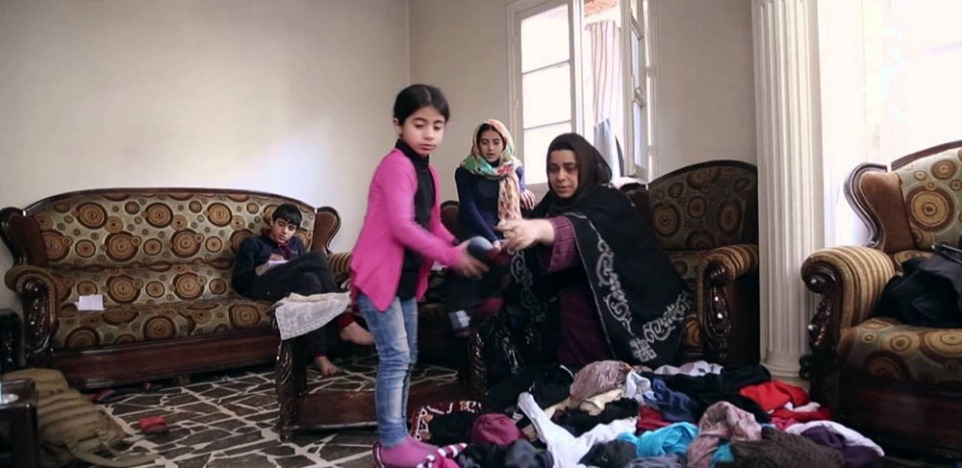This is the sixth year in the Syrian War; the death toll is now estimated at 470,000 and counting. Abu Ali was an engineer but now he is a member of the rebel group, the Free Syrian Army. He lives with his wife Hala and their four children — Sara, Farah, Helen and Mohammed — in the city of Aleppo. Helen serves as a teacher for her siblings since most of the schools have been closed. Asked what she likes to do most, Farah talks about helping her father prepare bombs.

Young Mohammad states that he would like the chance to torture his enemies "so they could have a taste of what they have done to us." When the kids go to a bombed-out place, Helen reprimands Sara for taking something from the place that doesn't belong to her.

Abu Ali believes he is doing the right thing as a soldier in the Free Syrian Army but he feels immensely guilty for sacrificing his children to the revolution. One night, ISIS fighters kidnap Abu Ali and the family goes into full crisis mode. Hala is fearful that they will never see him again.
Feeling that nothing is left in Aleppo, Hala applies to Germany for asylum. After saying goodbye to Abu Ali's mother, who is too old to travel, the family leaves the destroyed city. They check into a crowded refugee camp like the more than 1.5 million other Syrians on the run have done. The family stays with a relative in Istanbul while Hala works on getting the right paperwork for asylum. After three months in Turkey, this beleaguered family learns that they have been approved for refugee passports. The small town of Goslar seems like a peaceful place compared to Aleppo.

Marcel Mettelsiefen is the producer and director of this PBS Frontline film which took three years to make. He proves to be both skillful and compassionate as he encourages this family to share their fears, feelings, hopes, and dreams.
